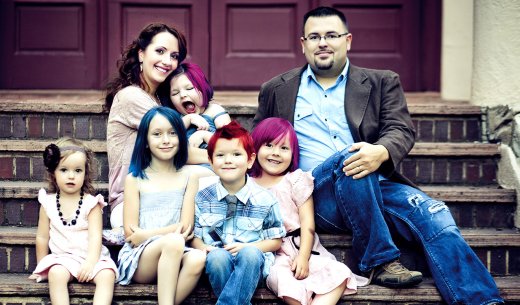
Almost every year as the Vancouver International Film Festival is about to get underway, or has just started, something happens to prejudice VanRamblings’ attendance at the festival. In 1992, VanRamblings collapsed at the back of The Cinematheque while watching a screening of Michael Haneke’s Benny’s Video, which we’d already seen in preview, but wanted to see again. VanRamblings was rushed to UBC Hospital where we spent two weeks watching the U.S. election on TV, and Bill Clinton’s performances in the debates. For the most part, VanRamblings missed VIFF that year.
In 2004, VanRamblings attempted to take in an early Sunday morning screening of a film at The Cinematheque, and while parking our car were rear-ended by a late model SUV — we were almost killed. Once we got out of the hospital, we returned to VIFF, standing at the back of the various VIFF cinemas (we couldn’t sit) to enjoy the latter half of VIFF that year.
This year — according to our doc, we’ve been diagnosed with something called obstructive jaundice, the root causes of which we’ll discover upon attending UBC Hospital on Tuesday for an emergency battery of tests. Wondering why there was no VanRamblings column yesterday? We were simply too weak. Before week’s end VanRamblings’ very able physician has indicated that we’ll have a definitive diagnosis of the root cause of the current malady, and will take whatever correction action is required.
How many films will VanRamblings get to see at VIFF 2016, and how many columns will we be able to write over the 16-day course of the Festival?
Time and health will tell.
After Love. Belgian director Joaquim Lafosse brought his stunner Our Children to VIFF a couple of years back. In 2016, VIFF brings Lafosse’s new, Cannes-debuting family drama After Love — starring the can do no wrong Bérénice Bejo, co-star of the Academy Award winning film, Best Picture Oscar winner The Artist — to our 35th annual Festival by the sea.
Says Wendy Ide in Screen Daily …
“After Love presents an unflinching portrait of the final weeks of a marriage. Fifteen years worth of simmering grudges about sock laundry have boiled over, the battle lines have been drawn in the house that they are still forced to share, and the time they spend with their twin daughters is neatly apportioned between them. A relationship which is largely built on recriminations and point scoring is a dispiriting thing to witness, and this is certainly a tough watch at times. But it is a compelling drama, with its strong performances and adult themes.
While Lafosse scrupulously avoids taking sides in the break up, it is hard to muster much sympathy for either party. Captured with a handheld camera that prowls around their contested living space like a caged animal, the atmosphere is charged with petty sniping, the atmosphere undeniably sad, with moments of discomfort, where the tensions crackle and the fault lines in the bedrock of the marriage become clear.”
Says Peter Debruge in Variety, “As in Our Children, observing how the characters respond to a song reveals far more than any amount of dialogue could, and as Marie and Boris (Cédric Kahn) humour their daughters, we see the love they once shared for one another and realize why it’s so hard to break free from its shackles.”
All This Panic. One of the buzz films coming out of the Tribeca Film Festival this year, Jenny Gage’s intimate documentary portrait of female youth has been called evocative, ethnographic, raw and heartwarming, engaging and reminiscent of the Maysles Brothers’ work, Gage and her husband and director of photography, Tom Betterton, appreciative of the girls’ beauty, employing magic-hour light throughout, bathing the film’s subjects in a soft glow, the filmmakers far more interested in the girls’ inner lives.
Says Elise Nakhnikian in Slant Magazine …
“Loosely tracked over a three-year period as they hang out, play games, throw drunken parties, and interact with their families, the girls talk constantly, and they have insightful and touching things to say about friendship, their hopes for the future, love, sex, and more. The intensity and volatility of young female friendships surface in the relationship between loyal, grounded Lena and high-strung, unhappy Ginger, who start out as best friends, but go through a rocky period after Lena heads off to college and Ginger stays home, where she works and hangs out with a new group of friends.
There are also poignant glimpses into the girls’ family lives. A moment of intimacy between Ginger and her little sister, Dusty, on a rooftop is so resonant because we’ve heard Dusty confess that she wishes she had a closer relationship with the standoffish Ginger. Meanwhile, Ginger’s defensiveness and quick temper may be due at least partly to the prickly relationship she has with her father, who can’t seem to find a kind word to say to or about her.
Every scene in All This Panic feels vivid and true, in this honest, impressionistic portrait of a cohort of 21st-century American girls.”
All This Panic offers a fierce, sure-footed and remarkably intimate portrait.
Goldstone. From director Ivan Sen, Australia’s premier filmmaker of aboriginal descent, says Luke Buckmaster in his five-star review in The Guardian, “Goldstone is a masterpiece of outback noir that packs a political punch …
“… the film belonging to a suite of Australian films that contemplate land ownership in memorable ways, from 1932’s On Our Selection to 1950’s Bitter Springs and even 1997’s The Castle, Goldstone has more weight than any of them, because the film’s spiritual roots hark back to the traditional owners of the land. In a small but moving role David Gulpilil plays a man who cannot be bought; his soul is connected to the ground and the sky.”
Says Eddie Cockrell in his review in Variety, “The sun is hot, the motives are cold and the film is blazingly noir as Indigenous detective Jay Swan (Aaron Pedersen) returns for another investigation of Outback moral rot in multi-hyphenate helmer Ivan Sen’s socially conscious, supremely accomplished procedural thriller, a film unequalled in contemporary Aussie cinema.”
![]()
![]()
![]()
VanRamblings has now previewed 27+ acclaimed VIFF films that are about to arrive on our shores having garnered critical acclaim at film festivals in every far flung community across the globe. Previous VanRamblings’ VIFF 2016 columns, very much like the one today, may be found here.




